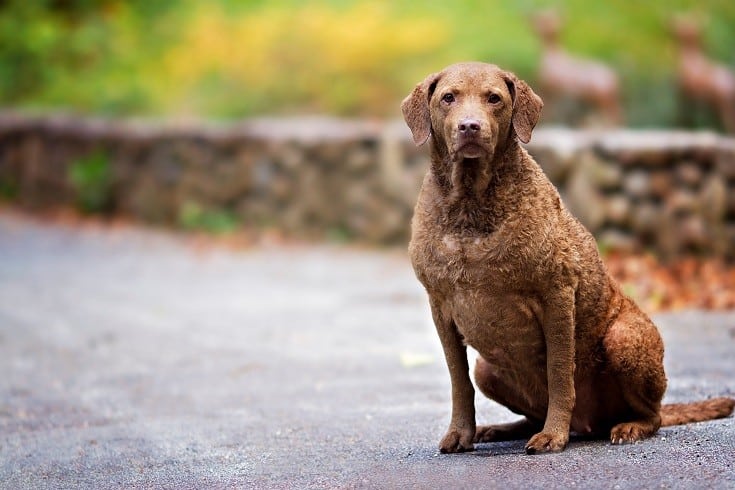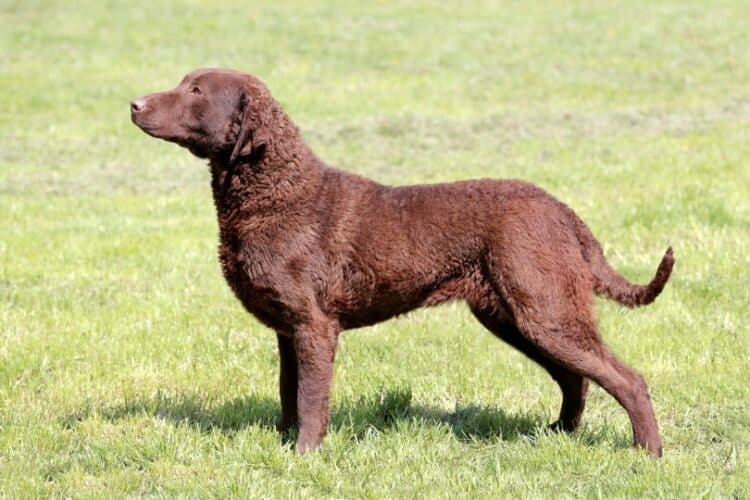If you are an allergy sufferer, you know all too well the havoc that allergens can have on your body. Many allergy sufferers are hesitant to adopt a dog because of the potential for allergies. While there is no evidence that Chesapeake Bay Retrievers are any more likely to cause allergies than other breeds, no dog is truly hypoallergenic.
It’s important to do your research before adopting a dog, and find out what kind of allergens you’re sensitive to. Dog allergies are often caused by exposure to the dead skin flakes that pets shed (dander). Dogs also shed saliva, urine, sweat, and fur. Of these, dander is particularly problematic since it is very small and can remain airborne for a long period of time with just a little air circulation.
In addition to collecting easily in upholstered furniture and clinging to clothing, dog allergens can also stick to carpets and bedding. So while it may be true that some dogs drop less hair than shedding types, no breed is completely allergy-proof.
Do Chesapeake Bay Retrievers Shed?
Chesapeake Bay Retrievers have a moderate to low shedding coat. This means that they do not shed as much as some other large breeds such as Golden Retrievers or Huskies. Their coat is made up of two layers—a top layer of longer, water-resistant hair, and a soft undercoat that keeps them warm. The amount of shedding for Chessies varies depending on the time of year. It is normally more obvious during spring and fall as the dogs “blow” their coats.
Overall, Chesapeake Bay Retrievers require relatively little coat care. As hard-working dogs, they are fairly low maintenance. Their shedding is easily controlled if they are brushed regularly during the shedding season. Brushing your dog regularly with a rubber brush will gather dropping hair on the brush, ensure a healthy coat, and help control the amount of oil in their coat. The coat of a Chessie tends to be dense, wavy, and oily, which makes it water-repellent.
Additionally, the oily nature of the coat also helps reduce the accumulation of dander, which as we have seen is the major cause of dog allergies. However, you may still have allergic reactions to a moderately shedding, oily-coated dog such as a Chessie.

What Breeds of Dogs Are More Hypoallergenic?
The breeds of dogs that are typically considered to be more hypoallergenic are those that have shorter coats and less shedding. Dogs that fall into this category include Poodles, Yorkshire Terriers, Bichon Frise, Maltese, and Schnauzers, because these breeds tend to shed less. However, it is not certain that this commonplace belief is true.
According to a study published in 2011 in the American Journal of Rhinology and Allergy, there were no major differences in the presence of allergens between homes with dogs that were labeled as hypoallergenic and homes with dogs that were not. In spite of these findings, the study authors say more research is needed to confirm their results. If you are severely allergic to dogs, your best course of action is to forego owning one. If your allergy is mild, you may get used to your allergic reactions over time.
Final Thoughts
In conclusion, Chesapeake Bay Retrievers are not hypoallergenic. If you are looking for a dog that does not cause allergies, there are other breeds that may be a better fit for you. Be sure to do your research before you decide on a breed and consult with your doctor and veterinarian if you have any questions.
Featured Image Credit: Shutterstock
















